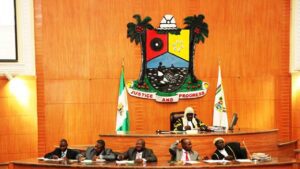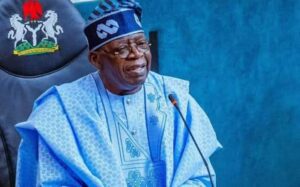
Desmond Tutu, voice that changed human rights’ landscape of South Africa- Clerics
Christian leaders in Oyo State, Nigeria, have described the late South Africa Archbishop, Desmond Tutu, as a voice that changed the human rights landscape of South Africa.
They made the remarks in an interview with the Newsmen on Tuesday in Ibadan, while reacting to the death of Tutu.
Reports state that the late South African Archbishop, known to have led numerous marches and campaigns to oppose the policy of racial segregation, died on Dec. 26 at the age of 90.
Tutu, also a South African Anglican Archbishop and Theologian, was known for his work as an anti-apartheid and human rights activist.
In his reactions, the Bishop, Catholic Diocese of Oyo, Most Rev. Emmanuel Badejo, described Tutu as a clergyman of great faith and courage.
Badejo said: “Tutu played a frontline role in the struggle against apartheid and in the important Truth Commission that followed after apartheid had been defeated.
“The esteem with which he was regarded by people and successive governments in South Africa would be difficult to match by any other clergyman.
“Tutu’s legacy is the evidence of how important it is for clergymen to act as a moral compass in their nation and for people in time of political turbulence and abuse of human rights without having to vie for political power.
“The late South Africa Archbishop epitomised the best response for those who questioned the involvement of the clergy in political discourse whenever a nation is floundering.”
According to him, one can hardly imagine a South Africa under apartheid without Desmond Tutu.
“He stood firmly with the opposition led by the late President Nelson Mandela and the likes of him against apartheid with all his clerical influence and rhetorical power.
“Even, he suffered some intimidation and harassment from some quarters, his was one of the voices that the government of the day could not help, but listen to in order to bring the country back in the path of sanity.
“Many troubled countries, especially in Africa, have a lot to learn from the important role, which this clergyman played in the building of his nation and use it as a template to reorganise their future as well,” Badejo said.
Similarly, Apostle Joshua Akinyemiju, the Chairman, Oyo State Christian Association of Nigeria (CAN), described Tutu as “a veteran peace campaigner”.
Akinyemiju said,”Tutu was best known for his leadership in the struggle against apartheid in South Africa, for which he won the Nobel Peace Prize in 1984″.
The CAN Chairman said that he was later elected Archbishop Emeritus of Cape Town in 1986, the highest position in the Anglican Church in South Africa.
“All lovers of truth, peace, justice and equality will greatly miss him.
“Though he is dead, his legacy as a freedom fighter and peace campaigner will be on the front seat for a long time to come,” he said.
Akinyemiju expressed the association’s condolences to the government and people of South Africa.
“May God accept his gentle soul and grant all his mourners the fortitude to bear the irreparable loss,” he said.
Also, Rev. Alexander Okoye of the All Saints Church, Nasarawa, described Tutu’s death as “a fallen Iroko tree” .
Okoye described Tutu as “an iconic spiritual leader, anti-apartheid activist and global human rights campaigner.”
The cleric said he was a man of extraordinary intellect, integrity and invincibility against the forces of apartheid.
Okoye added that Tutu was also tender and vulnerable in his compassion for those who had suffered oppression, injustice and violence under apartheid, oppressed and downtrodden people around the world.
“Brethren, many great men of God had gone because death is inevitable, as everyone must die, but most importantly is where one will go after death,” he said



